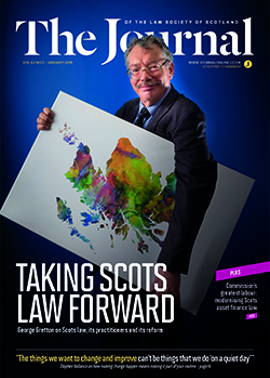President's column

Happy new year! So 2018 is here already. It does not seem like four years since I travelled through France to commemorate the anniversary of the start of the “war to end all wars”. Over 10 days we rode the line of the retreat from Mons towards Paris, visiting cemeteries and battle sites accompanied by a former cavalry officer turned military historian. The British retreated. The other side lost a lot more lives, so we reported it as a victory. Honest interpretation or fake news?
Back in those days, newspapers didn’t report every setback. The information stream to the public was not as open as might have been thought. It was called propaganda. The Government played down losses and defeats to keep morale up. Now with phones capturing images and with global communications, there is little that happens of note that is not reported. That brings its own challenges, and opportunities for so-called fake news (why is it always bad or critical?), sharing misleading material across social media. Too many rely on headlines and social media as their primary source of news. A few words taken out of context can spark outraged comment. As lawyers we are trained to examine the facts, but are you ever guilty of believing fake news?
Power of perception
Despite social media sites clamping down on accounts that distribute it, fake news is a threat. It’s no wonder that just about every organisation and politician (but apparently not Donald Trump) has a communications team working to keep their spokespeople on message and to prevent the odd side comment being taken out of context. Sometimes I worry that concerns about perception dominate thinking, rather than a proper consideration of the facts or arguments. Maybe it’s due to being time poor, but it seems that many do not bother to read to the end of the argument. It has all to do with appearances. If it looks wrong (even if it is not wrong), it’s wrong.
As lawyers, we’re taught to look at all the evidence, evaluate the facts, and reach a conclusion. If we just went with perception we’d have no not proven verdicts. Mind you, we’d save a fortune on trials. We could just post a few headlines and the judge could decide on what the public might think.
There is a public appetite for the humiliation of those who dare to seek professional, political or even celebrity status. It is difficult to understand why anyone would step forward for public service, yet many still do. If improper behaviour is alleged, there is certainly an argument for people in the public eye to step back while an investigation is underway. However, if they are exonerated, surely as much fuss should be made of that as the original allegation; but it seems it never is. Mud sticks.
Positive message
All that said, I don’t want to come across as a relic opposed to any kind of digital communication. At the Society for example, the wealth of information and support which we provide for our members and in the public interest is phenomenal and would have been simply unaffordable pre-internet. And social media has the capacity to work wonders for very worthy causes. Awareness and support of our own Baublefest campaign grew exponentially as a result of Facebook and Twitter posts. Look out for results of exactly how much YOU raised, and if you didn’t donate… what better time than the new year?
Once I’m no longer responsible as your President I think I might start using digital media to create positive fake news which for a few moments may bring a smile. You never know, it may then become self-fulfilling. One bit of information that isn’t fake is that over 90% of the public think solicitors are trustworthy. That’s one of many things that makes me proud to be a solicitor.
In this issue
- Valuing loss of society: an elusive consistency
- Child maintenance: yet another DWP effort
- Trading futures
- Appeals and extracts: sticking to the rules
- Making the law work better (1)
- Reading for pleasure
- Opinion: Trish McLellan
- Book reviews
- Profile
- President's column
- 2018: keep up the momentum
- People on the move
- "One lifetime is not enough"
- Legally habit-forming
- Equality in service
- The Scottish draft Budget 2018-19: what happened?
- Legal software: has your supplier been bought out?
- Asset finance: time for reform
- Human trafficking from the defence perspective
- Contract law in flux
- The limits of appeal
- Attention media lawyers
- Disability: a new focus
- A tale of two Budgets
- System redesign
- 21st Century Bar rides again
- Scottish Solicitors' Discipline Tribunal
- Happy new year?
- Specialist accreditation scheme relaunches
- Public policy highlights
- Paralegal pointers
- Making the law work better
- At the cutting EDGE
- Confirmation declarations agreed
- Q & A corner
- Documents, data and the GDPR
- Ask Ash
- Appreciation: Ethel May Houston OBE






